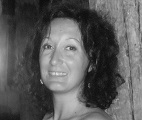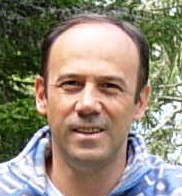Studiare
In questa sezione è possibile reperire le informazioni riguardanti l'organizzazione pratica del corso, lo svolgimento delle attività didattiche, le opportunità formative e i contatti utili durante tutto il percorso di studi, fino al conseguimento del titolo finale.
Calendario accademico
Il calendario accademico riporta le scadenze, gli adempimenti e i periodi rilevanti per la componente studentesca, personale docente e personale dell'Università. Sono inoltre indicate le festività e le chiusure ufficiali dell'Ateneo.
L’anno accademico inizia il 1° ottobre e termina il 30 settembre dell'anno successivo.
Calendario didattico
Il calendario didattico indica i periodi di svolgimento delle attività formative, di sessioni d'esami, di laurea e di chiusura per le festività.
| Periodo | Dal | Al |
|---|---|---|
| primo semestre lauree triennali | 17-set-2018 | 11-gen-2019 |
| secondo semestre lauree triennali | 18-feb-2019 | 31-mag-2019 |
| Sessione | Dal | Al |
|---|---|---|
| prove intermedie - sessione autunnale | 5-nov-2018 | 9-nov-2018 |
| sessione invernale lauree triennali | 14-gen-2019 | 15-feb-2019 |
| prove intermedie - sessione primaverile | 15-apr-2019 | 18-apr-2019 |
| sessione estiva lauree triennali | 3-giu-2019 | 5-lug-2019 |
| Sessione autunnale | 26-ago-2019 | 13-set-2019 |
| Sessione | Dal | Al |
|---|---|---|
| Sessione autunnale (validità a.a. 2017/18) | 6-dic-2018 | 7-dic-2018 |
| Sessione invernale (validità a.a. 2017/18) | 3-apr-2019 | 5-apr-2019 |
| Sessione estiva (validità a.a. 2018/19) | 10-set-2019 | 11-set-2019 |
| Periodo | Dal | Al |
|---|---|---|
| Festa di Ognissanti | 1-nov-2018 | 1-nov-2018 |
| Festa dell’Immacolata | 8-dic-2018 | 8-dic-2018 |
| Vacanze di Natale | 22-dic-2018 | 6-gen-2019 |
| Vacanze di Pasqua | 19-apr-2019 | 23-apr-2019 |
| Festa della liberazione | 25-apr-2019 | 25-apr-2019 |
| Festa del lavoro | 1-mag-2019 | 1-mag-2019 |
| Festa del Santo Patrono - S. Zeno | 21-mag-2019 | 21-mag-2019 |
| Attività sospese (vacanze estive) | 5-ago-2019 | 23-ago-2019 |
Calendario esami
Gli appelli d'esame sono gestiti dalla Unità Operativa Segreteria dei Corsi di Studio Economia.
Per consultazione e iscrizione agli appelli d'esame visita il sistema ESSE3.
Per problemi inerenti allo smarrimento della password di accesso ai servizi on-line si prega di rivolgersi al supporto informatico della Scuola o al servizio recupero credenziali
Docenti
 roberto.fini@univr.it
roberto.fini@univr.it
 martina.menon@univr.it
martina.menon@univr.it
 francesca.rossignoli@univr.it
francesca.rossignoli@univr.it
 0444 393941 (Ufficio Vicenza) 0458028261 (Ufficio Verona)
0444 393941 (Ufficio Vicenza) 0458028261 (Ufficio Verona)
Piano Didattico
Il piano didattico è l'elenco degli insegnamenti e delle altre attività formative che devono essere sostenute nel corso della propria carriera universitaria.
Selezionare il piano didattico in base all'anno accademico di iscrizione.
1° Anno
| Insegnamenti | Crediti | TAF | SSD |
|---|
2° Anno Attivato nell'A.A. 2019/2020
| Insegnamenti | Crediti | TAF | SSD |
|---|
3° Anno Attivato nell'A.A. 2020/2021
| Insegnamenti | Crediti | TAF | SSD |
|---|
| Insegnamenti | Crediti | TAF | SSD |
|---|
| Insegnamenti | Crediti | TAF | SSD |
|---|
| Insegnamenti | Crediti | TAF | SSD |
|---|
| Insegnamenti | Crediti | TAF | SSD |
|---|
Legenda | Tipo Attività Formativa (TAF)
TAF (Tipologia Attività Formativa) Tutti gli insegnamenti e le attività sono classificate in diversi tipi di attività formativa, indicati da una lettera.
Statistica (2019/2020)
Codice insegnamento
4S00121
Docente
Coordinatore
Crediti
9
Offerto anche nei corsi:
- Statistica del corso Laurea in Economia Aziendale (Vicenza)
Lingua di erogazione
Italiano
Settore Scientifico Disciplinare (SSD)
SECS-S/01 - STATISTICA
Periodo
primo semestre triennali dal 16-set-2019 al 10-gen-2020.
Obiettivi formativi
L’insegnamento si propone di fornire le tecniche di base della statistica descrittiva, del calcolo delle probabilità e dell'inferenza statistica a studenti di corsi di laurea in discipline economiche e aziendali. Nel loro insieme, tali tecniche forniscono la strumentazione per l'analisi quantitativa nei processi conoscitivi legati all'osservazione di fenomeni collettivi. Da un punto di vista applicativo, tali tecniche sono indispensabili a fini descrittivi, interpretativi e decisionali per la gestione delle informazioni statistiche ufficiali nonché per la conduzione d'indagini statistiche inerenti fenomeni economici e sociali. Oltre a fornire il necessario apparato statistico-matematico, l’insegnamento si prefigge l’obiettivo di fornire strumenti concettuali per una valutazione critica delle metodologie prese in considerazione. Al termine delle lezioni, lo studente dovrà essere in grado utilizzare gli strumenti appresi per condurre analisi statistiche relative a fenomeni economici e sociali.
Programma
Modalità didattiche: La maggior parte del corso si svolgerà attraverso una serie di lezioni frontali alle quali gli studenti sono fortemente invitati a partecipare prendendo regolarmente gli appunti. Fanno parte integrante del corso una serie di esercitazioni. Alcune delle esercitazioni, da svolgere a casa individualmente, saranno successivamente corrette in aula. Tutte le esercitazioni sono indispensabili per una adeguata comprensione degli argomenti del corso.
Programma:
a) Statistica descrittiva
Concetti introduttivi; fenomeni collettivi, popolazione e campione; la raccolta, lo spoglio e la classificazione dei dati; caratteri qualitativi e quantitativi; fonti statistiche.
Tipi di dati statistici; distribuzioni statistiche: semplici, doppie, multiple, unitarie, di frequenza, relative, pesate, di quantità; rappresentazioni grafiche; istogramma.
Frequenze cumulate e retrocumulate; funzione di ripartizione a gradini per distribuzioni di frequenza; funzione di ripartizione continua per dati in classi.
Sommatorie semplici e doppie e produttorie: proprietà.
Gli indici di localizzazione; la media aritmetica; la media armonica; la media geometrica; la media quadratica; la media cubica; la media potenziata di quarto ordine e le altre medie potenziate; le medie lasche; la mediana; la mediana come centro di grado 1; quartili, decili, percentili e quantili; la moda.
La variabilità e gli indici di variabilità; il campo di variazione; la differenza interquartile; gli scostamenti semplici medi; lo scarto quadratico medio e la varianza; la varianza di una trasformazione lineare e del miscuglio; la standardizzazione; differenza media; gli indici relativi di variabilità: il coefficiente di variazione.
I momenti dall’origine e i momenti centrali; l’asimmetria e gli indici di asimmetria; la curtosi e le misure di curtosi.
Distribuzioni doppie o multiple, unitarie e di frequenza; media aritmetica della somma di più variabili; media aritmetica del prodotto di due variabili; covarianza; varianza della somma di più variabili; distribuzioni condizionate; indipendenza; indice di dipendenza chi-quadrato; indice di connessione C.
Interpolazione statistica; il metodo dei minimi quadrati; la retta dei minimi quadrati; il coefficiente di correlazione lineare r; la disuguaglianza di Cauchy-Schwarz; il coefficiente di determinazione R2; devianza totale, spiegata e residua.
b) Probabilità
Esperimenti aleatori; spazio campionario; diagrammi ad albero; eventi aleatori e operazioni tra eventi; elementi di calcolo combinatorio.
Spazi di probabilità; definizione assiomatica della probabilità; diverse interpretazioni della probabilità.
Probabilità condizionata; legge del prodotto; indipendenza stocastica tra eventi; formula delle probabilità totali; teorema di Bayes.
Variabili aleatorie; funzione di ripartizione; variabili aleatorie discrete e continue; trasformate di variabili aleatorie; valore atteso e varianza. Particolari distribuzioni discrete: uniforme, Bernoulli, binomiale.
Particolari distribuzioni continue: rettangolare, normale, esponenziale negativa.
Variabili aleatorie doppie discrete; distribuzione di probabilità congiunta; distribuzioni di probabilità marginali e condizionate; indipendenza tra variabili aleatorie; covarianza; coefficiente di correlazione di Bravais.
Variabili aleatorie multiple (cenni).
Combinazioni lineari di variabili aleatorie; media campionaria di variabili aleatorie indipendenti; somma di variabili aleatorie normali indipendenti.
Legge (debole) dei grandi numeri; legge dei grandi numeri di Bernoulli per frequenze relative.
Teorema del limite centrale.
c) Statistica inferenziale
Campioni probabilistici; media campionaria; frequenza relativa campionaria; varianza campionaria; distribuzioni campionarie chi-quadrato, t di Student, F di Snedecor.
Stima puntuale; correttezza, efficienza e consistenza degli stimatori; stima di una media, di una proporzione, di una varianza.
Stima per intervallo (intervallo di confidenza) per una media, per una proporzione (grandi campioni), per una varianza.
Verifica delle ipotesi; test ad una coda ed a due code per una media, per una proporzione (grandi campioni), per una varianza; confronto tra due proporzioni (grandi campioni); confronto tra due medie; confronto tra due varianze.
Libro di testo
- G. CICCHITELLI, P. D'URSO, M. MINOZZO (2017), Statistica: principi e metodi, Terza edizione, Pearson Italia, Milano.
Testi di approfondimento
- A. AZZALINI (2001), Inferenza statistica: una presentazione basata sul concetto di verosimiglianza, Seconda edizione. Springer Verlag Italia.
- E. BATTISTINI (2004), Probabilità e statistica: un approccio interattivo con Excel. McGraw-Hill, Milano.
- S. BERNSTEIN, R. BERNSTEIN (2003), Statistica descrittiva, Collana Schaum's, numero 109. McGraw-Hill, Milano.
- S. BERNSTEIN, R. BERNSTEIN (2003), Calcolo delle probabilita', Collana Schaum's, numero 110. McGraw-Hill, Milano.
- S. BERNSTEIN, R. BERNSTEIN (2003), Statistica inferenziale, Collana Schaum's, numero 111. McGraw-Hill, Milano.
- F. P. BORAZZO, P. PERCHINUNNO (2007), Analisi statistiche con Excel. Pearson, Education.
- D. GIULIANI, M. M. DICKSON (2015), Analisi statistica con Excel. Maggioli Editore.
- P. KLIBANOFF, A. SANDRONI, B. MODELLE, B. SARANITI (2010), Statistica per manager, Prima edizione, Egea.
- D. M. LEVINE, D. F. STEPHAN, K. A. SZABAT (2014), Statistics for Managers Using Microsoft Excel, Seventh Edition, Global Edition. Pearson.
- M. R. MIDDLETON (2004), Analisi statistica con Excel. Apogeo.
- D. PICCOLO (1998), Statistica, Seconda edizione 2000. Il Mulino, Bologna.
- D. PICCOLO (2010), Statistica per le decisioni, Nuova edizione. Il Mulino, Bologna.
Guida allo studio
Durante lo svolgimento del corso sarà indicato, per ogni specifico argomento, quali parti studiare del libro di testo e quali altri testi consultare.
Gli studenti non frequentanti possono rivolgersi al docente per avere le indicazioni necessarie.
Una guida definitiva allo studio del libro di testo sarà distribuita a fine corso.
Si consiglia di seguire le lezioni e le esercitazioni e di prendere regolarmente gli appunti.
Conoscenze preliminari
Per seguire con profitto il corso non sono richieste particolari conoscenze preliminari di matematica.
Si assumono per date le nozioni acquisite con gli insegnamenti di base, in particolare le nozioni di limite, derivata e integrale.
Esercitazioni
Fanno parte integrante del corso una serie di esercitazioni.
Alcune delle esercitazioni, da svolgere a casa individualmente, saranno successivamente corrette in aula.
Tutte le esercitazioni sono indispensabili per una adeguata comprensione degli argomenti del corso.
| Autore | Titolo | Casa editrice | Anno | ISBN | Note |
|---|---|---|---|---|---|
| G. Cicchitelli, P. D'Urso, M. Minozzo | Statistica: principi e metodi (Edizione 3) | Pearson Italia, Milano | 2018 | 9788891902788 |
Modalità d'esame
La prova di esame consiste di una prova scritta (di circa 2 ore) composta da una selezione di esercizi, sia teorica che pratica.
Per la prova scritta si potrà usare solamente una calcolatrice e non sarà consentito utilizzare nessun altro materiale (libri, appunti, ecc.). Non è prevista prova orale obbligatoria, ma gli studenti potranno sostenere una prova orale facoltativa qualora il punteggio riportato allo scritto sia superiore od uguale a 15/30. Con la prova orale gli studenti possono guadagnare o perdere un massimo di tre punti rispetto al voto conseguito nella prova scritta.
Per sostenere l'esame lo studente deve presentarsi munito di tessera universitaria, ovvero di libretto universitario, o di idoneo documento di riconoscimento.
PROVA INTERMEDIA
A metà corso è prevista una prova scritta intermedia di accertamento sugli argomenti già affrontati nel corso con l’intento di indurre lo studente allo studio sistematico degli argomenti del programma sin dalle prime lezioni e consentire allo stesso di suddividere il programma d’esame in due parti, sottoposte a distinta verifica dell’apprendimento (prova intermedia e prova integrativa finale).
- La prova intermedia è facoltativa; la partecipazione dello studente alla prova non pregiudica il suo diritto a rifiutare il voto riportato (nel rispetto delle modalità indicate dal docente), così da sostenere l’esame intero a fine semestre.
Tale prova intermedia ha le stesse caratteristiche delle prove d'esame ed ha per oggetto gli argomenti del programma dell’insegnamento trattati sino al momento dello svolgimento della prova intermedia. Tali argomenti saranno specificati in apposito avviso sulla pagina e-learning dell’insegnamento con congruo anticipo rispetto alla data della prova. Gli argomenti su cui verte la prova intermedia sono esclusi dalla prova scritta di completamento a fine semestre.
- Appelli utili per completare l’esame: l'esito della prova ha valore sul superamento finale dell'esame esclusivamente nell' appello della sessione d'esami immediatamente successiva alla fine del corso.
- Il voto conseguito pesa per metà sul voto definitivo, al quale si perviene superando un'analoga seconda prova scritta durante l'appello della sessione d'esami immediatamente successiva alla fine del corso. Per il superamento dell'esame entrambe le prove parziali devono essere superate con un voto uguale o superiore a 8/30.
La prova intermedia è introdotta con lo scopo di attrarre lo studente, fin dal primo giorno di frequenza, verso uno studio regolare e sistematico della materia, con la possibilità di mettere anticipatamente a frutto tale impegno, superando in sostanza una parte dell'esame. Essa accerta inoltre, a metà percorso, la qualità dello studio fino a quel punto effettuato e le conoscenze acquisite. Inoltre, nel caso di mancato superamento, può fornire in tempo utile allo studente importanti indicazioni sulle criticità della preparazione.
NOTA CORONAVIRUS: durante il periodo di emergenza sanitaria l'esame si svolgerà in modalità orale su ZOOM. I dettagli e consigli per la preparazione sono resi noti mediante messaggi via Intranet. Si raccomanda pertanto agli studenti di monitorare la casella di posta regolarmente.
Tipologia di Attività formativa D e F
Prospettive
Avvisi degli insegnamenti e del corso di studio
Per la comunità studentesca
Se sei già iscritta/o a un corso di studio, puoi consultare tutti gli avvisi relativi al tuo corso di studi nella tua area riservata MyUnivr.
In questo portale potrai visualizzare informazioni, risorse e servizi utili che riguardano la tua carriera universitaria (libretto online, gestione della carriera Esse3, corsi e-learning, email istituzionale, modulistica di segreteria, procedure amministrative, ecc.).
Entra in MyUnivr con le tue credenziali GIA: solo così potrai ricevere notifica di tutti gli avvisi dei tuoi docenti e della tua segreteria via mail e a breve anche tramite l'app Univr.
Prova finale
La prova finale, il cui superamento attribuisce 3 CFU, consiste in un elaborato in forma scritta di almeno 30 cartelle, che approfondisce un tema a scelta relativo a uno degli insegnamenti previsti dal piano didattico dello studente. Il tema e il titolo dell’elaborato dovranno essere selezionati in accordo con un docente dell’Ateneo di un SSD fra quelli presenti nel piano didattico dello studente. Il lavoro deve essere sviluppato sotto la guida del docente. L’elaborato è oggetto di esposizione e discussione orale dinanzi a una Commissione Istruttoria, composta dal docente di cui al comma precedente, in qualità di Relatore, e da un secondo docente appartenente al medesimo settore scientifico-disciplinare o a settore affine. La discussione si svolge in una data concordata con il Relatore, di norma in occasione di una qualsiasi sessione d’esame. Con il consenso del Relatore, la tesi può essere redatta e la discussione svolgersi in lingua inglese. La scelta del tema e del titolo dell’elaborato e lo svolgimento della discussione a norma dei commi precedenti possono essere effettuate a partire dall’inizio dell’ultimo anno di corso, e comunque solo dopo l’acquisizione in carriera di almeno 120 CFU. Valutati la qualità dell’elaborato e della sua presentazione e discussione da parte dello studente, la Commissione Istruttoria formula una proposta di giudizio, che può essere positiva o negativa: nel primo caso, essa è accompagnata da una proposta di punteggio, da un minimo di 0 a un massimo di 4 punti; nel secondo caso, è accompagnata dall’indicazione al laureando di opportuni suggerimenti migliorativi. La proposta di punteggio non deve in alcun modo tener conto della carriera del laureando. La determinazione del punteggio finale e il conferimento del titolo sono di esclusiva competenza della Commissione di Laurea, composta secondo quanto stabilito dal RDA. È possibile conseguire la laurea anche in un tempo inferiore a tre anni, fermi restando gli obblighi contributivi per tutta la durata legale del corso.
Per maggiori informazioni e la consultazione delle scadenze e delle commissioni di laurea si rimanda all'apposita sezione dei Servizi di Segreteria studenti.
Elenco delle proposte di tesi e stage
| Proposte di tesi | Area di ricerca |
|---|---|
| Tesi di laurea - Il credit scoring | Statistics - Foundational and philosophical topics |
Tutorato per gli studenti
I docenti dei singoli Corsi di Studio erogano un servizio di tutorato volto a orientare e assistere gli studenti del triennio, in particolare le matricole, per renderli partecipi dell’intero processo formativo, con l’obiettivo di prevenire la dispersione e il ritardo negli studi, oltre che promuovere una proficua partecipazione attiva alla vita universitaria in tutte le sue forme.Esercitazioni Linguistiche CLA
Gestione carriere
Tirocini e stage
Nel piano didattico dei Corsi di Laurea triennale (CdL) e Magistrale (CdLM) di area economica è previsto uno stage come attività formativa obbligatoria. Lo stage, infatti, è ritenuto uno strumento appropriato per acquisire competenze e abilità professionali e per agevolare la scelta dello sbocco professionale futuro, in linea con le proprie aspettative, attitudini e aspirazioni. Attraverso l’esperienza pratica in ambiente lavorativo, lo studente può acquisire ulteriori competenze ed abilità relazionali.
Per informazioni specifiche, consultare il servizio di Segreteria studenti appositamente dedicato a Stage.






























